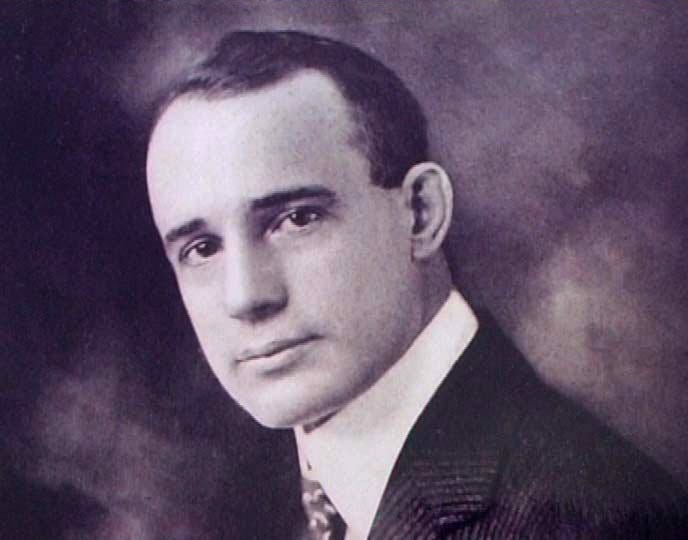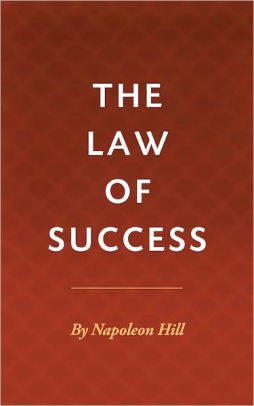A Book Report

It’s always hard to evaluate the worth of a work when 95% is a waste of time but 5% is life-changing.
I just finished The Law of Success by Napoleon Hill, first published in 1925. It was recommended to me by my NY-based friend, Nivedita Kulkarni, when I told her I wrote a 14-page document in January 2019, entitled, “Why Am I Not More Successful?” I am eternally grateful to Neve for the reco.
(Well, I guess I’ll never know if I’m eternally grateful, but ask me in 50 years, and I may be a little closer to eternity. (I don’t think it works that way.))
I was surprised that I’d never heard of Hill’s self-help book, since I’ve read a number of self-help books. My Dad gave me his copy of, How to Win Friends and Influence People when I was 12. It was mind-blowing… even for a 12-year-old. Coming to think of it, I’d likely credit Dale Carnegie for shaping me into the person I am today, perhaps more than anyone outside my family.
I never read The Secret. But now I feel I have, given that much of that book is based on the Law of Attraction, first referenced by Hill in the early part of last century. Furthermore, I came to LA in 2006, when The Secret was all over the airwaves. If you worked in entertainment in Los Angeles at the time, it’s almost like you consumed it by mere absorption.
I don’t doubt that there’s something to the Law of Attraction. I’ve spent enough time with Deepak Chopra to understand the core of his views — mostly that we are energy, one with God, children of the stars.
My issue has been the whole concept of Like Attracts Like. Um, have you ever heard of magnets? Like attracts Unlike, if anything. And in romance, there’s something to the whole notion of Opposites Attract. That said, I get what they’re driving at: if you emit positive vibes, then you’re likely to attract positive people.
I’m often fascinated by great advice I’ve only heard one time. I was at a conference, and right before we went to break, the last speaker said something to the effect of, “During this break, you’ll find that people will split into two types of groups: one type is going to be negative, bitching about the people, the food, the agenda. Get out of that group and go to a positive one. Don’t get dragged down by people who are dumping all over this.”
For me, this has always been challenging, because I like to think of myself as a leader and a comedian. So I love to build things up and tear things down. So, I’d gravitate towards (or create) a group that struck the balance — took notes like a nerd but had a sense of humor about it. To that end, here are the pros and cons of this book. And really, you don’t really need to read Hill’s entire book. These notes pretty much cover it.

The Law of Success — Negatives
It’s positively shocking that there are so many typos. Even content-wise, some editions have 15 laws, some 16. Nobody’s decided to clean it up? It’s been almost 100 years. Get on it, publishers.
Hill, the author, was later outed as a con man. He most likely did not meet most of the people he claimed to meet, including Henry Ford, whom he all but fellates for most of the book. That said, don’t throw the baby out with the bathwater. Take what Hill says at face value… it’s good stuff.
Hill is very long-winded. This book should be 150 pages, not 374. Then again… takes one to know one, right? I could do with an editor sometimes, too. The book is good but repetitive. The book is good but repetitive.
At three different points in the book (pp. 79, 88, and 197), he writes out credos; I don’t know why he didn’t just combine them. I did so below.
The Law of Success — Positives
Here are the behaviors I’m going to try to incorporate, based on his advice:
Write in one sentence that which I can do better than anyone. (Ensure it’s something I want to do.) This is my Definite Chief Aim or Definite Purpose. (I know it’ll involve hosting live events as well as designing a talk show specific to my strengths.)
Write out how much money I plan to make over the next five years.
Pray for exactly what I want, e.g., if these are things you want, then pray for that specific career goal and to have children.
Everyday for six months, tender some service for free. Boy, with the amount of advice and time I give people, I don’t doubt I already do this. But I can make a more concerted effort. One thing I could do would be to offer a free workshop the afternoon of my shows, say like 1–3 PM.
Read Ralph Waldo Emerson’s Compensation essay. (Everyday, I read “Success,” but this is new to me.)
Everyday for 30 minutes, think of the person I intend to be by creating a mental picture of this person and then transforming that picture into reality through practical service.
Everyday for 10 minutes, focus on developing the 16 lessons of the LoS: Master Mind, Definite Chief Aim, Self-Confidence, Habit of Saving, Initiative and Leadership, Imagination, Enthusiasm, Self-Control, Habit of Doing More Than Asked, Pleasing Personality, Accurate Thought, Concentration, Cooperation, Failure, Tolerance, and Golden Rule. (I already forget Failure, but I guess I should figure this one out before I ironically sink the entire lesson.)
Add this to the list of quotes I read everyday… though I need to confirm whether I can truly commit to all of these behaviors. Yikes. This is a lot:
First: I know that I have the ability to achieve the object of my definite purpose, therefore I demand of myself persistent, aggressive, and continuous action toward its attainment.
Second: I realize that the dominating thoughts of my mind eventually reproduce themselves in outward, bodily action, and gradually transform themselves into physical reality, therefore I will concentrate my mind for thirty minutes daily upon the task of thinking of the person I intend to be, by creating a mental picture of this person and then transforming that picture into reality through practical service.
Third: I know that, through the principle of auto-suggestion, any desire that I persistently hold in my mind will eventually seek expression though some practical means of realizing it, therefore I shall devote ten minutes daily to demanding of myself the development of factors named in the sixteen lessons of this reading course on the Law of Success.
Fourth: I have clearly mapped out and written down a description of my Definite Purpose in life, for the coming five years. I have put a price on my services for each of these five years; a price that I intend to earn and receive, through strict application of the principle of efficient, satisfactory service which I will render in advance.
Fifth: I fully realize that no wealth or position can long endure unless built upon truth and justice, and therefore I will engage in no transaction which does benefit all whom it affects. I will succeed by attracting to me the forces I wish to use, and the cooperation of other people. I will induce others to serve me because I will first serve them. I will eliminate hatred, envy, jealousy, selfishness, and cynicism by developing love for all humanity, because I know that a negative attitude toward others can never bring me success. I will cause others to believe in me because I will believe in them and in myself. I will sign my name to this formula, commit it to memory, and repeat it aloud once a day with full faith that it will gradually influence my entire life so that I will become a successful and happy worker in my chosen field of endeavor.
I believe in myself. I believe in those who work with me. I believe in my employer. I believe in my friends. I believe in my family. I believe that God will lend me everything I need with which to succeed if I do my best to earn it through faithful and honest service. I believe in prayer and I will never close my eyes in sleep without praying for divine guidance to the end that I will be patient with other people and tolerant with those who not believe as I do. I believe that success is the result of intelligent effort and does not depend upon luck or sharp practices or double-crossing friends, fellow men, or my employer. I believe I will get out of life exactly what I put into it, therefore I will be careful to conduct myself toward others as I would want them to act toward me. I will not slander those whom I do not like. I will not slight my work no matter what I may see others doing. I will render the best service of which I am capable because I have pledged myself to succeed in life and I know that success is always the result of conscientious and efficient effort. Finally, I will forgive those who offend me because I realize that I shall sometimes offend others and I will need their forgiveness.
I wish to be of service to my fellow men as I journey through life. To do this I have adopted this creed as a guide to be followed in dealing with my fellow beings:
To train myself so that never, under any circumstances, will I find fault with any person, no matter how much I may disagree with him or how inferior his work may be, as long as I know he is sincerely trying to do his best.
To respect my country, my profession, and myself. To be honest and fair with my fellow men, as I expect them to be honest and fair with me. To be a loyal citizen of my country. To speak of it with praise, and act always as a worthy custodian of its good name. To be a person whose name carries weight wherever it goes.
To base my expectations of reward on a solid foundation of service rendered. To be willing to pay the price of success in honest effort. To look upon my work as an opportunity to be seized with joy and made the most of, and not as a painful drudgery to be reluctantly endured.
To remember that success lies within myself — in my own brain. To expect difficulties and to force my way through them.
To avoid procrastination in all it forms, and never, under any circumstances, put off until tomorrow any duty that should be performed today.
Finally, to take a good grip on the joys of life, so I may be courteous to men, faithful to friends, true to God — a fragrance in the path I tread.
We’ll see.
Rajiv Satyal is a comedian and a note-taking nerd. He resides in Los Angeles.



